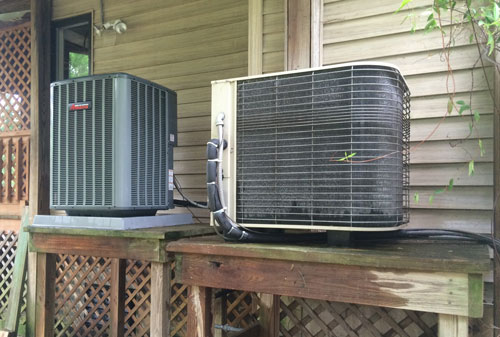Q: When we flush our toilet in our master bathroom the tub drain in that room gurgles. What is causing this?
 Your home’s plumbing system is a series of drain and vent pipes. When you flush a toilet or run water into the sink, it then travels down the drain and into the sewer or septic system. The vent pipes run vertically through the roof of your home, equalizing pressure within the plumbing system and allowing sewer gasses to escape. When you flush your toilet and the water is pushed through the drain lines, a vacuum is created behind that water, and air is pulled in through the vent to equalize that vacuum pressure immediately.
Your home’s plumbing system is a series of drain and vent pipes. When you flush a toilet or run water into the sink, it then travels down the drain and into the sewer or septic system. The vent pipes run vertically through the roof of your home, equalizing pressure within the plumbing system and allowing sewer gasses to escape. When you flush your toilet and the water is pushed through the drain lines, a vacuum is created behind that water, and air is pulled in through the vent to equalize that vacuum pressure immediately.
CAUSE The cause of the gurgling is due to a blockage of some kind. If the vent is blocked, the air will have to be pulled into your plumbing system through some other opening- in this case, your tub drain. The gurgling sound is air being pulled through your tub’s drain trap.
WARNING This gurgling sound can be an early warning, putting off a drain cleaning can cause overflowed toilets, tubs and even water damage to your home. The blockage source can be as simple as the exposed roof vent being blocked by debris or ice. Another source of the blockage can be something within the drain pipes that would require a sewer machine or auger to break loose.
PREVENTION We’ve seen toilets “explode”, sending waste through bathroom and surrounding rooms, as well as carpets and sheetrock replaced due to backed up drains. Prevent these plumbing horrors from happening in your home by having the drain thoroughly cleaned by a drain cleaning professional and only putting flushable items in your drains


Recent Comments